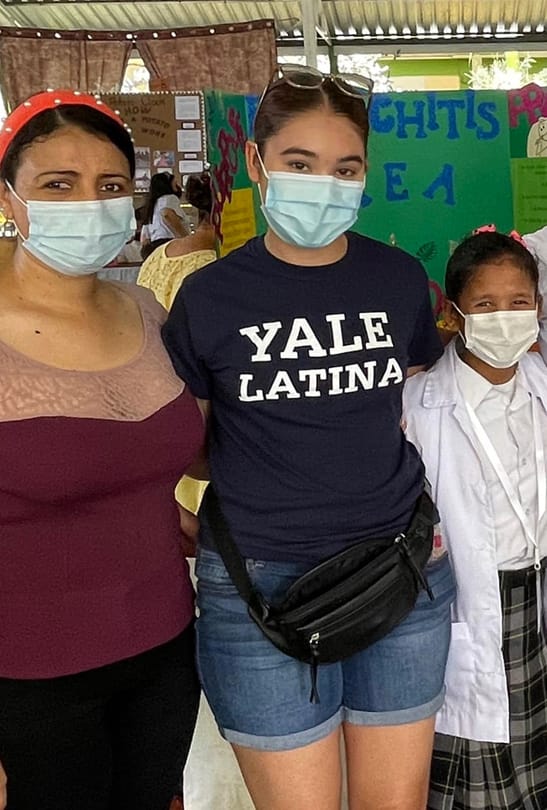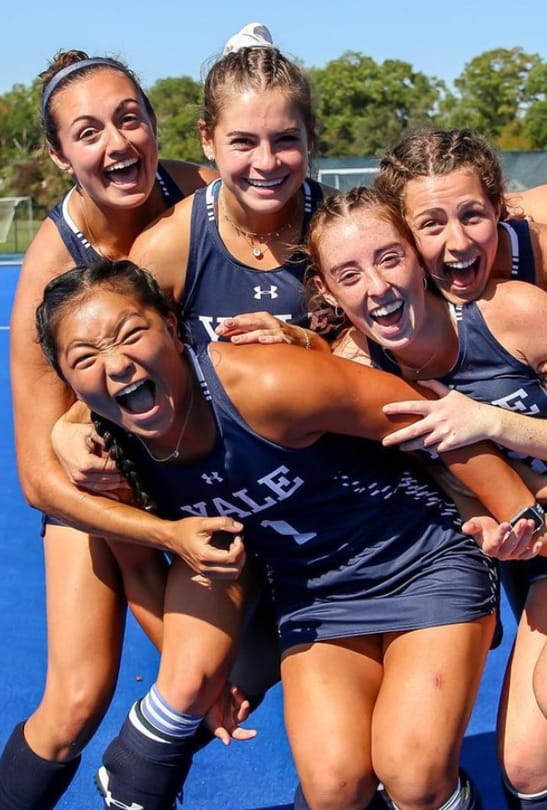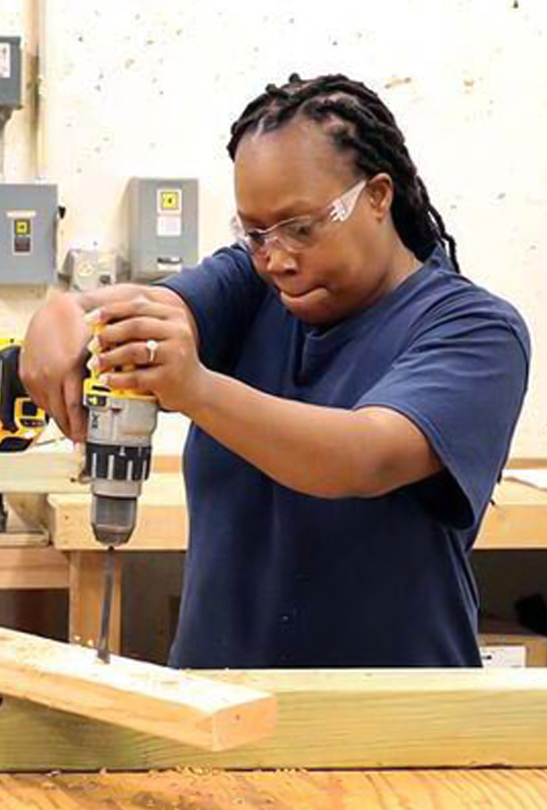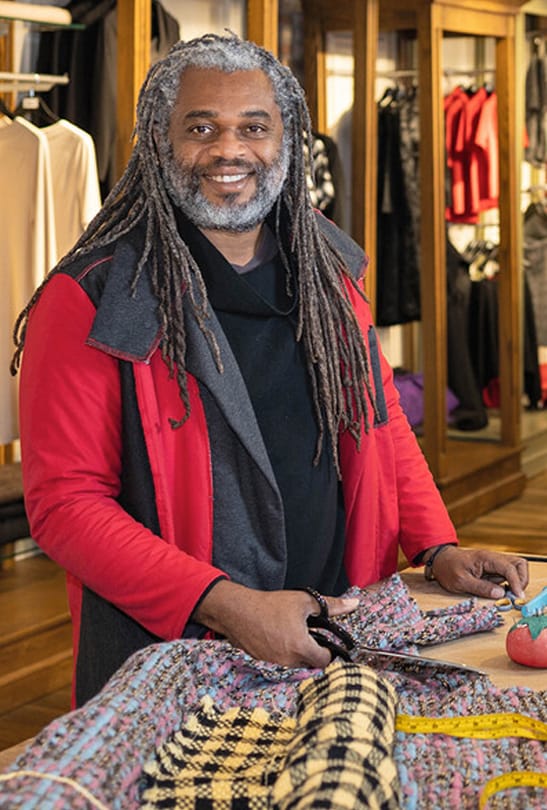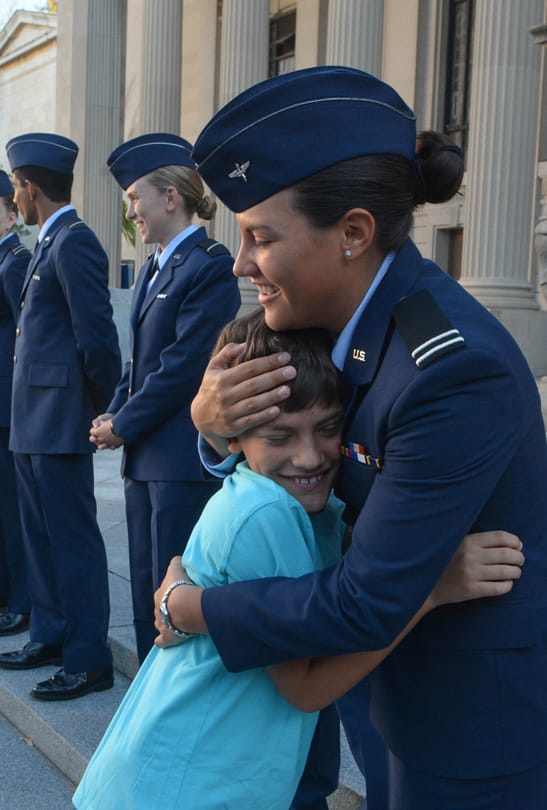Annual Report 2022
As the vice president responsible for Belonging at Yale, I have the benefit of learning every day the ways in which individuals and groups contribute to our university’s community of excellence. Their work embodies the guiding principles identified by the President’s Committee on Diversity, Inclusion, and Belonging to advance Yale’s vision for a vibrant community life in which members encounter and appraise a broad array of ideas, are treated with dignity and respect, and feel welcome to make their voices heard.
Through the planning process at the university and “local” levels, we have committed to moving forward in six areas: Scholarship, Research, Practice, and Teaching; Professional and Personal Development of Inclusive Practices; Diversity of the Yale Community; Acknowledgment, Recognition, and Respect; Equitable Process, Procedure, and Response; and Communications, Transparency, Accountability.
This report illustrates the innovation and changes taking place within schools and administrative units to create the best possible Yale. My colleague, Gary Désir, vice provost for faculty development and diversity, and I reviewed university and unit Belonging at Yale plans and their infographic posters. These plans, their posters, and this report inform you of the many actions at the university and local level, share our successes, and recognize challenges and new opportunities for growth.
I hope that you will agree with me that there is much to celebrate about our community and that you will join us in the work ahead.
Creating an environment where everyone feels a sense of belonging and a call to contribute might be described as a marathon and not a sprint, but we can be proud of the progress we have already made. May we continue the work with renewed energy and commitment to belonging as a pathway to excellence at Yale.
—Kimberly M. Goff-Crews
Secretary and Vice President for University Life
University Priorities
Yale is actively working to enhance diversity, support equity, and promote an environment of welcome, inclusion, and respect. The accomplishments and actions shared here and in the University Priorities infographic highlight many of the university’s activities in the six areas of the Belonging at Yale Action Plan. These actions support both our commitment to excellence and our mission to improve the world.
In October 2020 President Salovey announced a set of goals and objectives for the university designed to support a sense of belonging for all members of the Yale community. In addition to charging each school and administrative unit to develop a plan to achieve these objectives, he identified a set of university-wide programs and initiatives to create a stronger and more inclusive Yale. President Salovey updated the Yale community in October 2021, and in December 2022, he announced new actions in response to the research of the Yale and Slavery Working Group.
Here you will find updates on the progress of many of the university-wide initiatives that have produced significant results within a relatively short period.
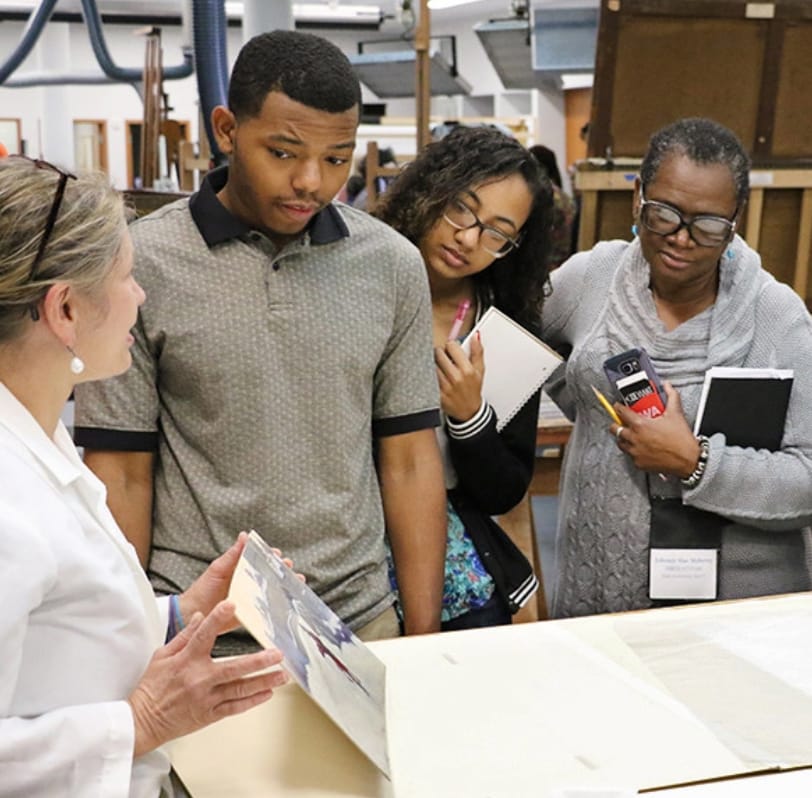
Scholarships and Historically Black Colleges and Universities
President Peter Salovey announced the Pennington Fellowship, a new scholarship that will support New Haven high school graduates who attend Historically Black Colleges and Universities. Named for the Reverend James W.C. Pennington, the first Black student to attend Yale, the competitive scholarship program will support about forty to fifty students at any time. They will receive up to $20,000 toward tuition and fees per year for each of four college years. The Pennington Fellowship builds on existing collaborations between Yale and HBCUs, including faculty-led research and teaching initiatives. The Graduate School of Arts and Sciences has been engaging with HBCU students to increase their participation in the graduate school’s one-year post-baccalaureate research program. In addition, Yale is increasing the number of HBCU students who participate in the eight-week-long summer undergraduate research fellowship (SURF) program.
Yale and Slavery Working Group
President Salovey formed the Yale and Slavery Working Group in October 2020. Since then, the group, under the leadership of David Blight, Sterling Professor of History and director of the Gilder Lehrman Center for the Study of Slavery, Resistance, and Abolition, has been studying Yale’s historical entanglements and associations with slavery, the slave trade, and abolition. Members of the working group released initial findings at the 2021 annual conference of the Gilder Lehrman Center and shared their progress regularly through a website and public presentations. Yale joined the Universities Studying Slavery consortium, a group of about 80 institutions across the country engaged in similar work. Next year, the group will publish its research in book form, and its scholarship will continue to inform our efforts to create a stronger Yale.
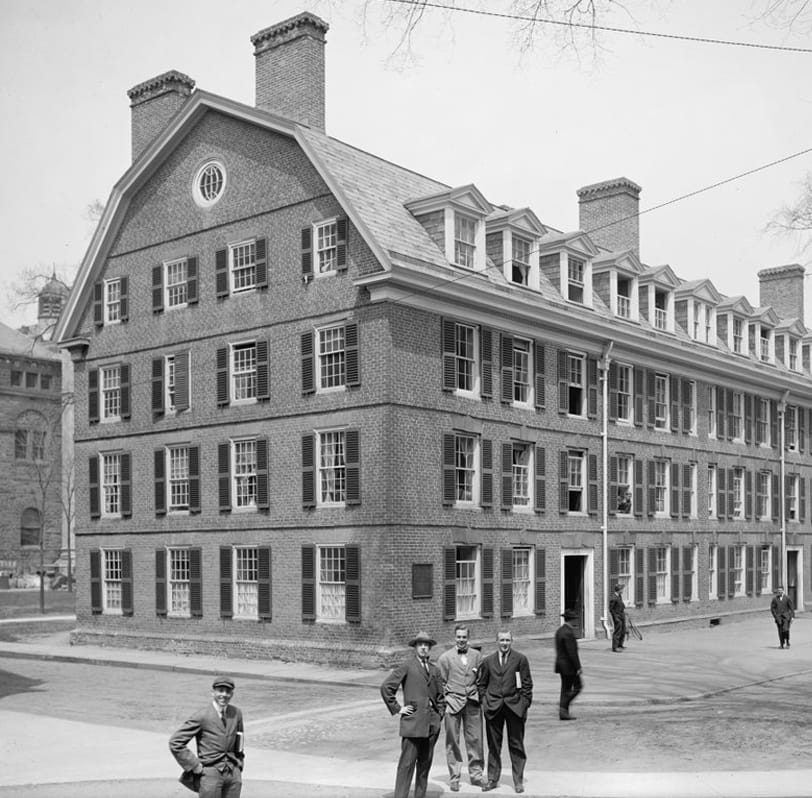
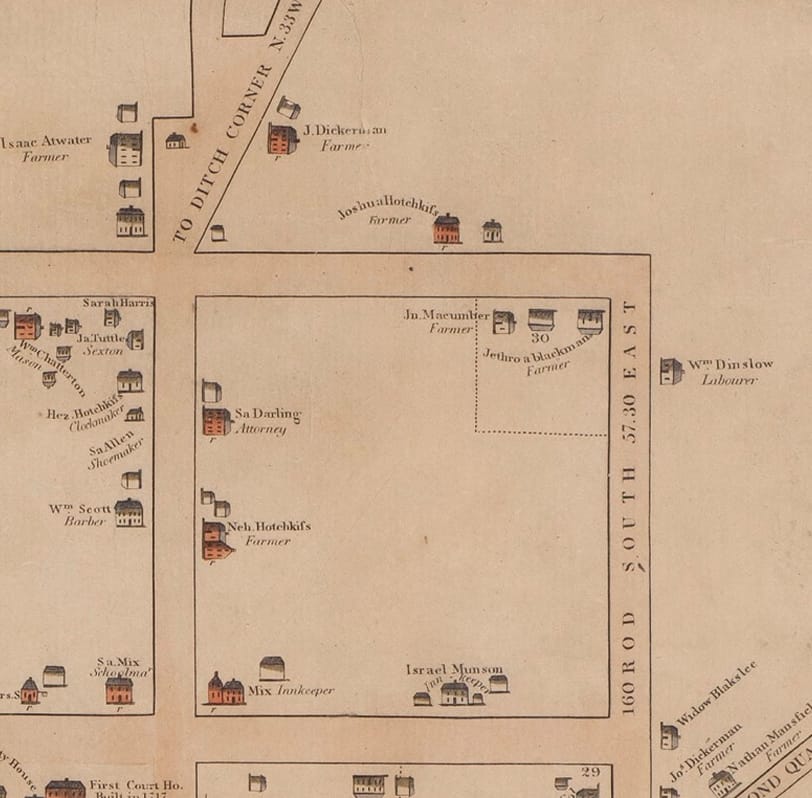
Professional Schools’ Actions Addressing Slavery
Complementing the research of the Yale and Slavery Working Group, several schools have also undertaken work to address Yale’s historic entanglements with slavery. The School of Medicine has hired two postdoctoral research associates—both historians of medicine and slavery—to research the school’s relationship to the slave trade, the content of medical instruction, and the relationship of the school to the New Haven community.
The Lillian Goldman Law Library currently has an exhibit that examines the role of slavery and race in the lives and work of the founders of the Law School. Two faculty members joined with librarians and students over two years to take a comprehensive view of the Law School’s history. The School of Architecture and the University of Michigan Law School are offering a joint course “Slavery, Its Legacies in the Built Environment.” The multi-disciplinary class examines chattel slavery’s imprint on American architecture and is developing tools to ensure that contemporary labor exploitation does not taint newly constructed memorials, monuments, and buildings.
In recognition of the Divinity School’s history, the School has allocated $20 million in endowment to fund new social justice scholarships and established funds for students interested in pursuing justice-focused research projects.
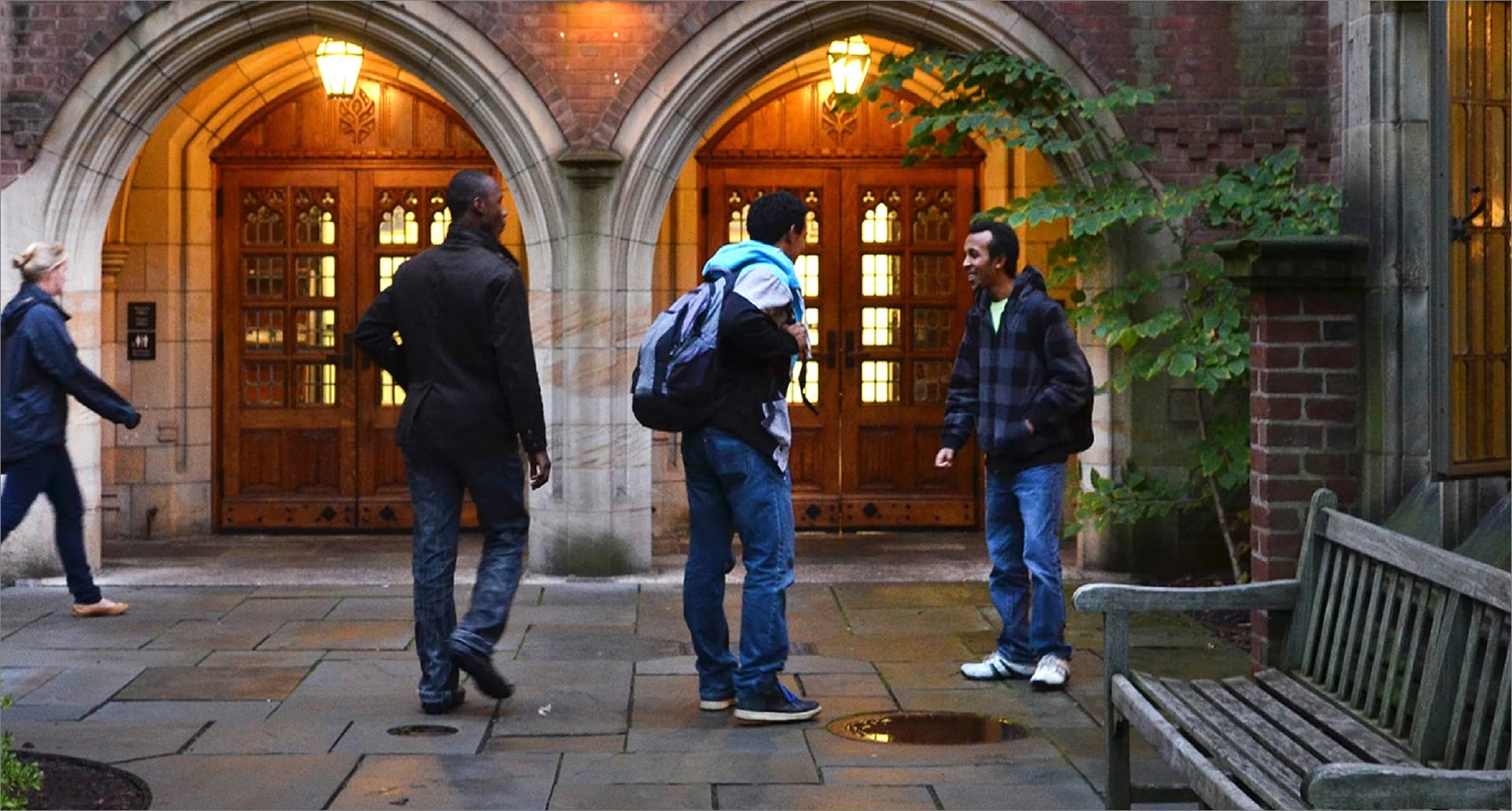

Faculty Excellence and Diversity Initiative
Yale’s Faculty Excellence and Diversity Initiative (FEDI), an $85 million commitment (launched in 2015 with an initial investment of $50 million) provides support for select ladder faculty and presidential visiting fellows who would enrich diversity or contribute on another dimension of strategic importance to the university. Yale has made great strides in increasing faculty diversity, recruiting 239 distinguished ladder faculty members, including those on the clinical track at the Yale School of Medicine, this academic year. Of the ladder faculty who started in this academic year, 50 (21 percent) are from underrepresented backgrounds—this is approximately double the average over the past ten years. In 2010, by comparison, only six percent of new Yale faculty members came from underrepresented groups. In addition, through FEDI, Yale has made 140 ladder faculty appointments and supported 60 visiting “Presidential Visiting Fellows.”
The Office of the Provost conducted a faculty-wide survey to understand how to support an environment of belonging for faculty members.
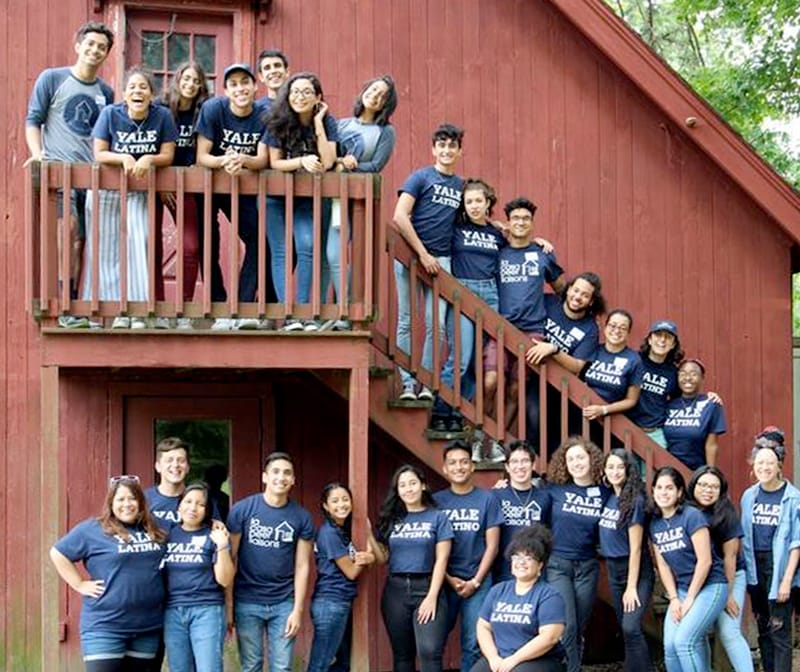
Financial Aid and Access
In announcing For Humanity,Yale’s current capital campaign, the university committed to raising $1.2 billion for increased financial aid and fellowships in all schools. Yale is also increasing financial aid to address the high levels of debt among students graduating from some of our professional schools. The Yale School of Music and the David Geffen School of Drama at Yale are now tuition-free for all students. This year Yale Divinity School began meeting the full tuition need of all aided students, and Yale Law School eliminated tuition for students with the greatest need. To provide greater access to a Yale College education, Yale has doubled the number of nontraditional students matriculating through the Eli Whitney Students Program, and in Fall 2021 announced full-need financial aid for all Eli Whitney Students. A record-setting 23 Eli Whitney Students, 13 U.S. military veterans, and 21 students who were most recently enrolled in community colleges began their Yale undergraduate education in fall 2022. Yale’s first-year class also includes 130 high-achieving, low-income QuestBridge scholars and more than 300 students who qualify for a federal Pell Grant. The First-year Scholars at Yale’s summer bridge program for low-income public high school graduates entering Yale College has doubled over the past five years and returned to campus in summer 2022.
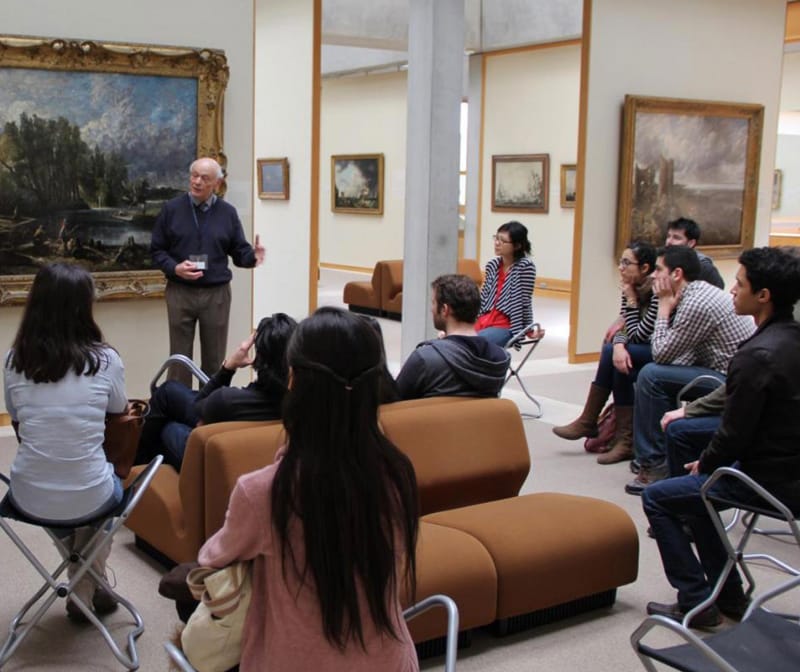
Postdoctoral Support
Yale has expanded its commitment to fostering a sense of belonging for postdoctoral scholars, under the leadership of Lynn Cooley, dean of the Graduate School of Arts and Sciences since 2014 and the vice provost for postdoctoral affairs. The new Office of Postdoctoral Affairs collaborates with the Yale Postdoctoral Association and other postdoc groups, whose programming and resources support postdocs’ professional development and sense of belonging. Beginning in 2022, the office has offered comprehensive professional development and career exploration programs that develop skills such as leadership and management, grant writing, mentoring, and public speaking. Reaching beyond Yale, the office is working with other universities through the American Association of Medical Colleges to develop best practices for equity in postdoc hiring that can be used in medicine and many other fields.
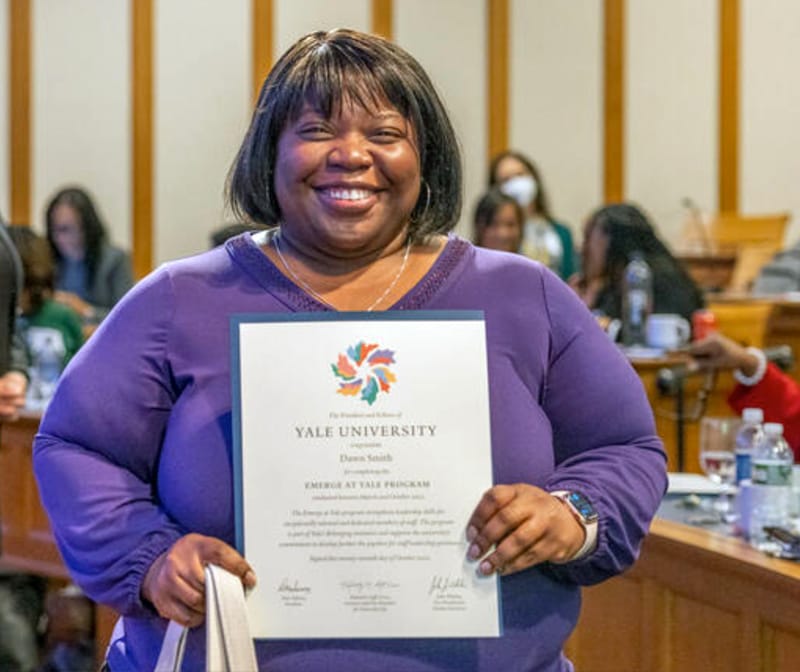
Investing in Staff: Emerge at Yale
The Emerge at Yale program supports the development of staff members to prepare them for leadership positions across campus. The program fosters skills among staff with high potential who will bring excellence and diversity to the ranks of senior leadership. Developed by Human Resources with experts in adult learning, leadership development, diversity, and belonging – including from the Yale School of Management – Emerge at Yale is delivered in eight live, full-day sessions over eight months. A cohort structure allows for collaboration and peer support throughout this rigorous learning experience. The Emerge pilot cohort of 19 participants ended in October 2022, and the second cohort of 21 participants launched in November. The program allows Yale to develop and retain the most talented and committed staff members.
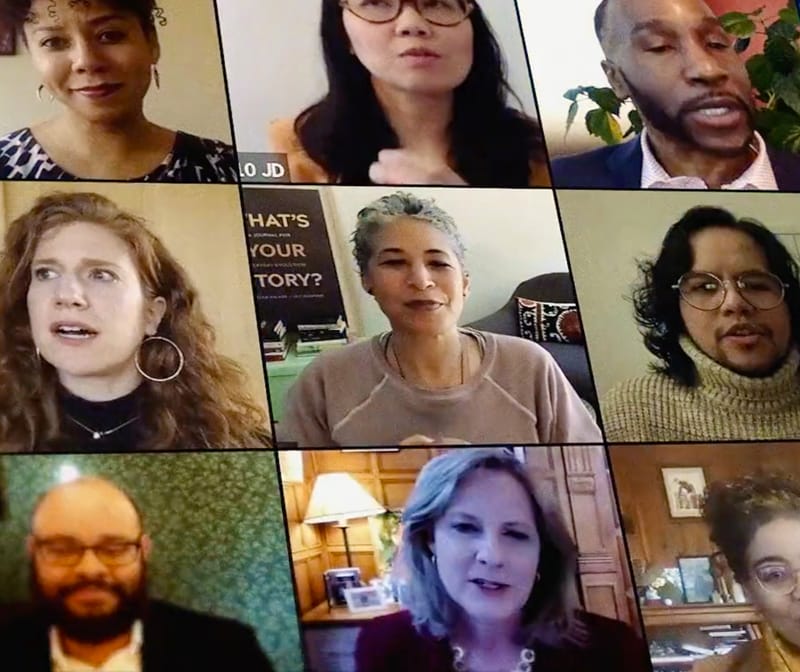
Supporting Yale’s Excellence and Diversity through the Alumni Community
Acknowledging the increase in diversity of Yale’s alumni, the mission of the Yale Alumni Association is “to enhance and renew the lifelong Yale experience for all alumni, whoever they are and wherever they may be.” The YAA works to support the university’s excellence by providing opportunities to learn about the histories and experiences of underrepresented groups. These opportunities are afforded to staff and alumni alike. Examples of the former include discussions based on readings and podcasts, and the sharing of personal stories with faculty members and university leaders. Programs for alumni include those organized by alumni groups around the world, supported by the YAA, and, most notably, the biennial IMPACT conferences. These conferences showcase the many ways that the Yale community is changing the world for the better. The third such conference, “IMPACT III: Building an Equitable Future,” will take place March 24-25, 2023. This event will focus on inspiring leaders and organizations advancing Belonging in a post-pandemic world fractured by competing visions of the future.
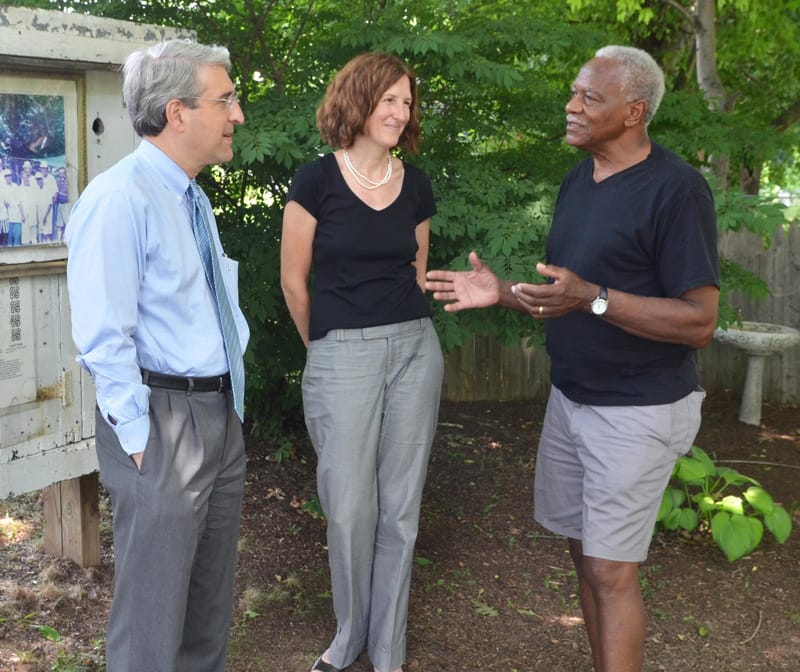
Supplier Diversity
Yale is working to diversify those who supply goods and services to the university and to support local businesses through its purchasing practices. Small local vendors have different needs than larger companies. For example, in 2022 Yale’s procurement office changed its policy for New Haven-based, minority-owned vendors and suppliers, paying them 15 days after invoicing, rather than the standard 45 days. This change allows smaller suppliers, including those with under-represented minority ownership, to compete for Yale contracts and allows Yale to build a more diverse list of vendors. Units of the university, including the Office of the President and the Office of Public Affairs and Communications, are examining their supplier relationships and seeking to hire more local and minority-owned businesses.
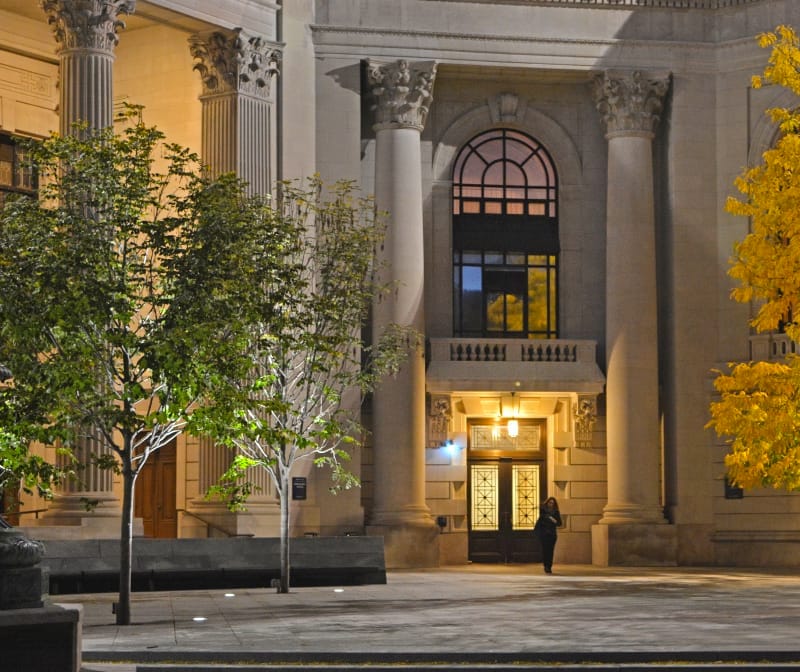
Public Safety
In 2022, public safety and community engagement were reimagined, and new, non-uniformed public safety leadership positions in the Office of the Secretary and Vice President for University Life and the Office of Public Safety and Community Engagement were created. A collaborative system for the safety and support of all students, faculty, staff, and guests was devised in partnership with the Office of Emergency Management, Mental Health & Counseling, deans and faculty within the schools, and other administrators. The Office of the Secretary and Vice President for University Life was also charged with implementing the university’s commitments to free expression, including preparations for and responses to protests and high-profile events.

Accessibility
Yale has enhanced support for students, faculty, and staff to facilitate disability accommodations and remove barriers to full participation. The Office of Institutional Equity and Accessibility, Student Accessibility Services, and the University Advisory Committee on Accessibility Resources were brought together under common leadership, and staff were added to meet significantly increased needs in the Yale community. The creation of a university-wide accessibility website, increased support for students through a peer-to-peer program, and new guidelines for accessible university events contributed to the expanded support.
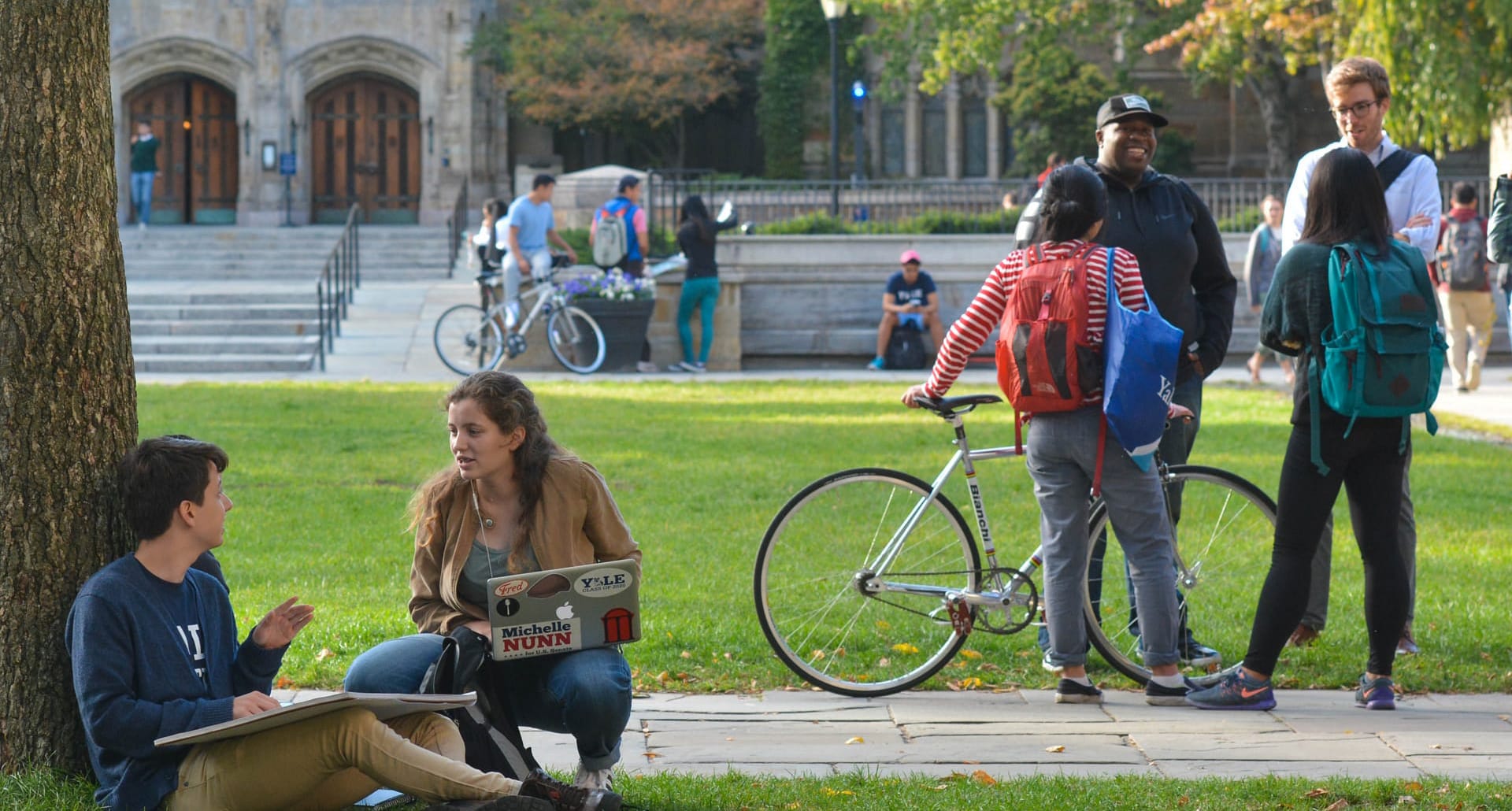
Unit Specific Results
At the request of President Salovey, schools and administrative units across the university developed specific and measurable action plans for themselves that reflect their commitment to diversity, equity, inclusion, and belonging.
The unit plans are built around six areas of focus: scholarship, research, and teaching; diversity of the Yale community; equitable processes, procedures, and responses; professional and personal development of inclusive practice; acknowledgement, recognition, and respect; and communication, transparency, and accountability.
Some units also committed to developing resources that would benefit the broader university community. The plans address a range of issues, including hiring and retention practices, student recruitment, curriculum review, obstacles to promotion and equity, and accessibility. Schools are engaging more alumni on issues of inclusion. Units are adding professional development and engagement opportunities for staff that are focused on communication, recognition, and respect.
Infographic posters developed by schools and units highlight progress toward their goals.
Created
Plans
Committed
To
Belonging Timeline Highlights
 |
|
| 2019 |  |
| 2020 |  |
| 2021 |  |
| 2022 |  |
 |
2019
The Faculty Excellence and Diversity Initiative (FEDI) was extended for another five years, with an increase in budget to $85 million from $50 million to support ladder faculty and presidential visiting fellows whose backgrounds and/or research interests enhance diversity.
The Emerging Scholars Initiative was created to recruit and retain outstanding graduate students from backgrounds that have been underrepresented in their chosen fields of study, including historically underrepresented minority students, first-generation college graduates, students from economically disadvantaged backgrounds, and women in STEM fields; graduate students who plan to pursue research related to issues of diversity and identity; or those who have been or are currently involved in diversity-related initiatives by volunteering for community service or outreach on a college or university campus.
The Afro-American Cultural Center (“The House”) celebrated its 50th anniversary, recognizing the intellectual, professional, and cultural contributions it has made to the Yale community and to society.
First Yale Alumni Association Impact conference was held. Impact II followed in 2021, and Impact III is scheduled for 2023.
50Women150 celebrated the 150th year of the first women students at Yale and the 50th anniversary of the admission of women to Yale College.
2020
President Peter Salovey established the Committee on Diversity, Inclusion, and Belonging and charged its members to review current activities and initiatives and offer a vision for diversity, equity, inclusion (DEI), and belonging; develop goals to achieve this vision; outline strategies to focus resources; and recommend actions to advance these strategies.
With the recommendations from the committee, President Salovey announced a new phase for Belonging at Yale — delving into the university’s history, building on existing work and measuring progress, assessing, and enhancing current actions, and making Yale a more welcoming place for everyone.
Professor and author of “The Person You Mean to Be” Dolly Chugh kicks off the Belonging at Yale Antiracism Speakers Series, followed by Professor Ibram X. Kendi, speaking about his book How to Be an Antiracist. The series continues with grants to schools, academic departments, and student organizations.
A collaborative system to support the safety of all students, faculty, staff, and guests was created by the Office of Public Safety and Engagement and the Office of the Secretary and Vice President for University Life (OSVPUL) in partnership with deans and staff in the schools, the Office of Emergency Management, Mental Health & Counseling, and other units. The OSVPUL now leads the coordination of activities that support the university’s commitments to free expression, including preparations for and responses to protests and high-profile events.
2021
Every school and administrative division on campus submitted its five-year plan to improve diversity, equity, and inclusion and promote a culture of belonging. The plans complement existing institutional actions to enhance diversity, promote equity, and foster an inclusive campus environment. The 27 plans were developed by 150 Yale community members and included more than 230 actions that contribute to a community of belonging.
Yale made an historic investment in the economy of the City of New Haven through a $140 million, six-year pledge toward inclusive growth.
Yale and Slavery Working Group was appointed by President Salovey and held a three-day conference.
The Law and Racial Justice Center was created, led by founder James Forman, J. Skelly Wright Professor of Law. The Center’s mission is to reform public safety and justice systems by developing practical applications that address complex societal issues.
Emerge, a new program for staff who have high potential for leadership roles and who will bring excellence and diversity to the senior ranks, was launched by Human Resources in consultation with the School of Management. Emerge completed its pilot program, with 19 participants, and launched a second cohort, with 21 participants.
The Supplier Diversity Program was created to identify and encourage New Haven minority-owned and women-owned businesses to bid for Yale contracts for services and supplies. The university established a “Net-15” policy through which local vendors are paid within 15 days of receipt of invoices.
The Office of Institutional Equity and Accessibility, Title IX, Student Accessibility Services, and the University Advisory Committee on Accessibility Resources were brought together under common leadership, and staff were added to meet significantly increased needs in the university community.
The Asian-American Cultural Center celebrated its 40th anniversary with a series of virtual events and the creation of a commemorative mural on the outside of the building.
2022
For Humanity, Yale’s capital campaign, announced that $1.2 billion would be raised for increased financial aid and fellowships in all schools.
1stGenYale, an alumni affinity group, placed 126 Yale College students on financial aid in 86 summer internships. Projects included research for Yale faculty (in the Schools of Public Health, Medicine, and Management) as well as non-Yale faculty, and internships at domestic and international institutions in the arts, education, science, government, social justice, and public service.
In early 2022, a communications project to inform and engage students, faculty, staff, and alumni was launched in collaboration with the Office of Public Affairs and Communications. Focused on opportunities for members of our university community to learn, experience, and act, this work includes monthly themes and opportunities for connection.
Schools and administrative units updated their Belonging at Yale plans and reviewed progress toward their goals. West Campus joined 27 other units creating action plans for the 2022-2023 year.
President Peter Salovey and Provost Scott Strobel announced the results of Yale’s first university-wide faculty climate survey, designed to help identify both strengths and areas that need additional work to foster a more productive, vibrant, and inclusive campus culture for the faculty.
A new scholarship, paid by Yale through the New Haven Promise program and named for James W.C. Pennington, the first Black student to attend Yale, will support local students attending historically Black colleges and universities (HBCUs).
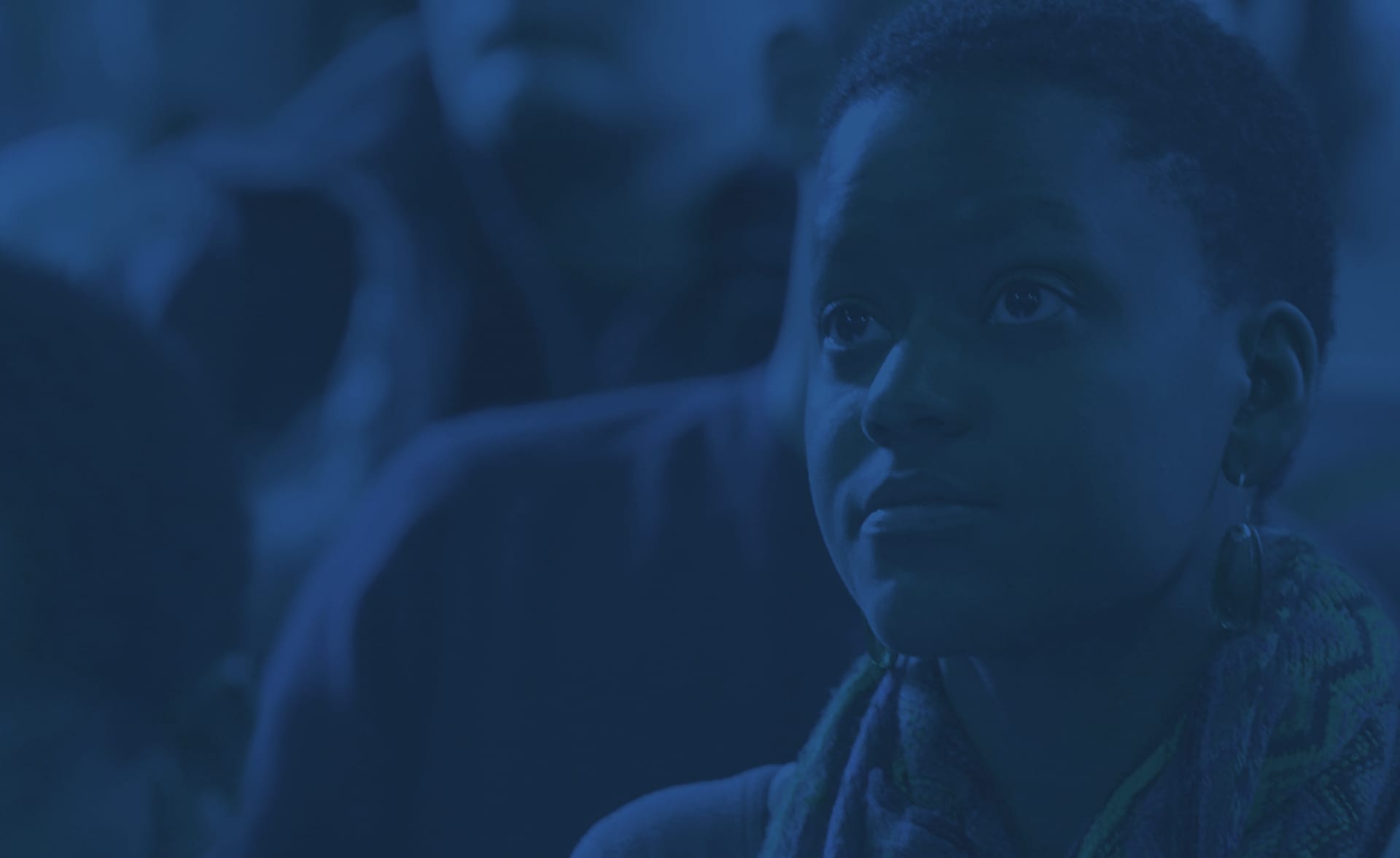
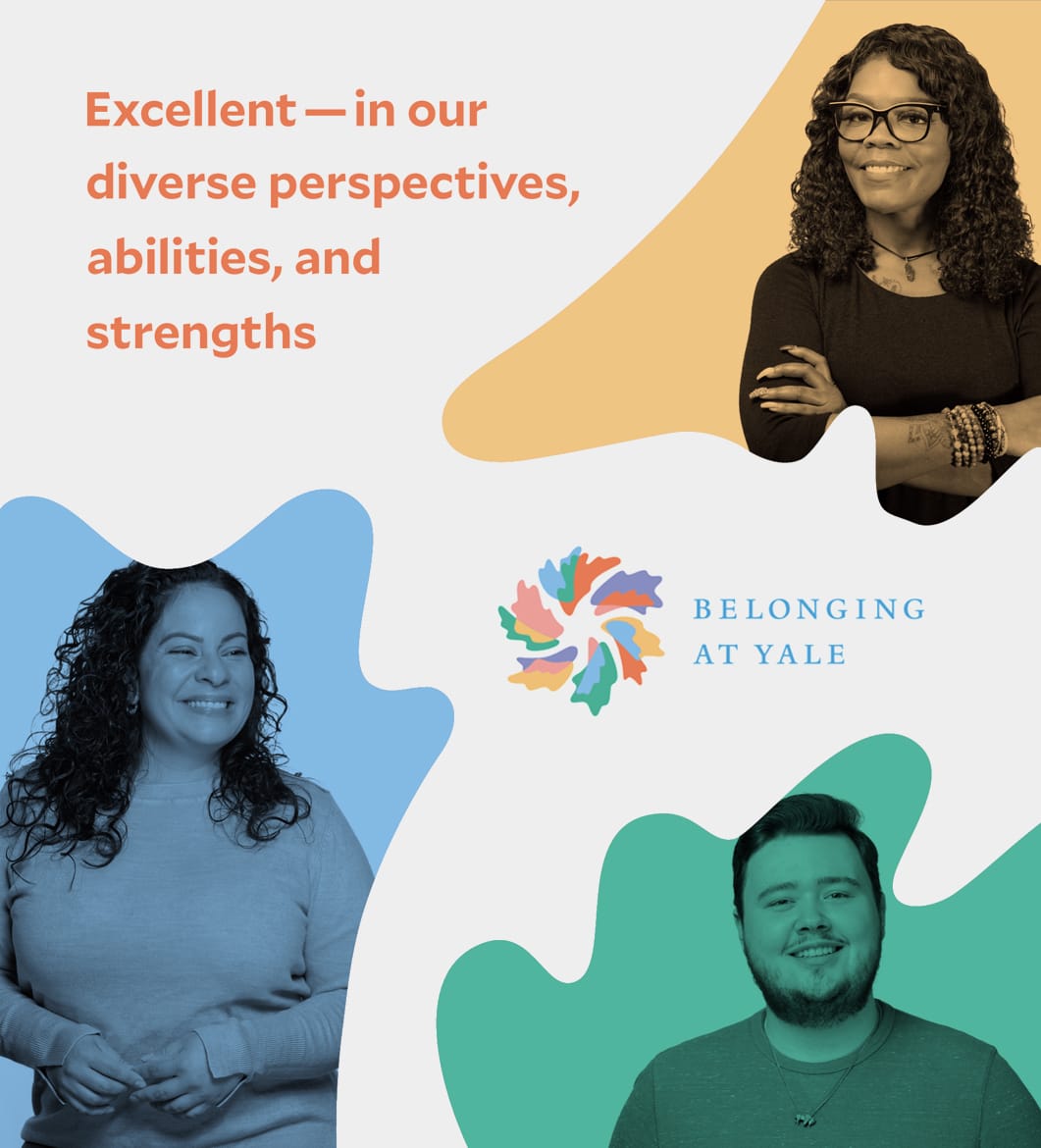
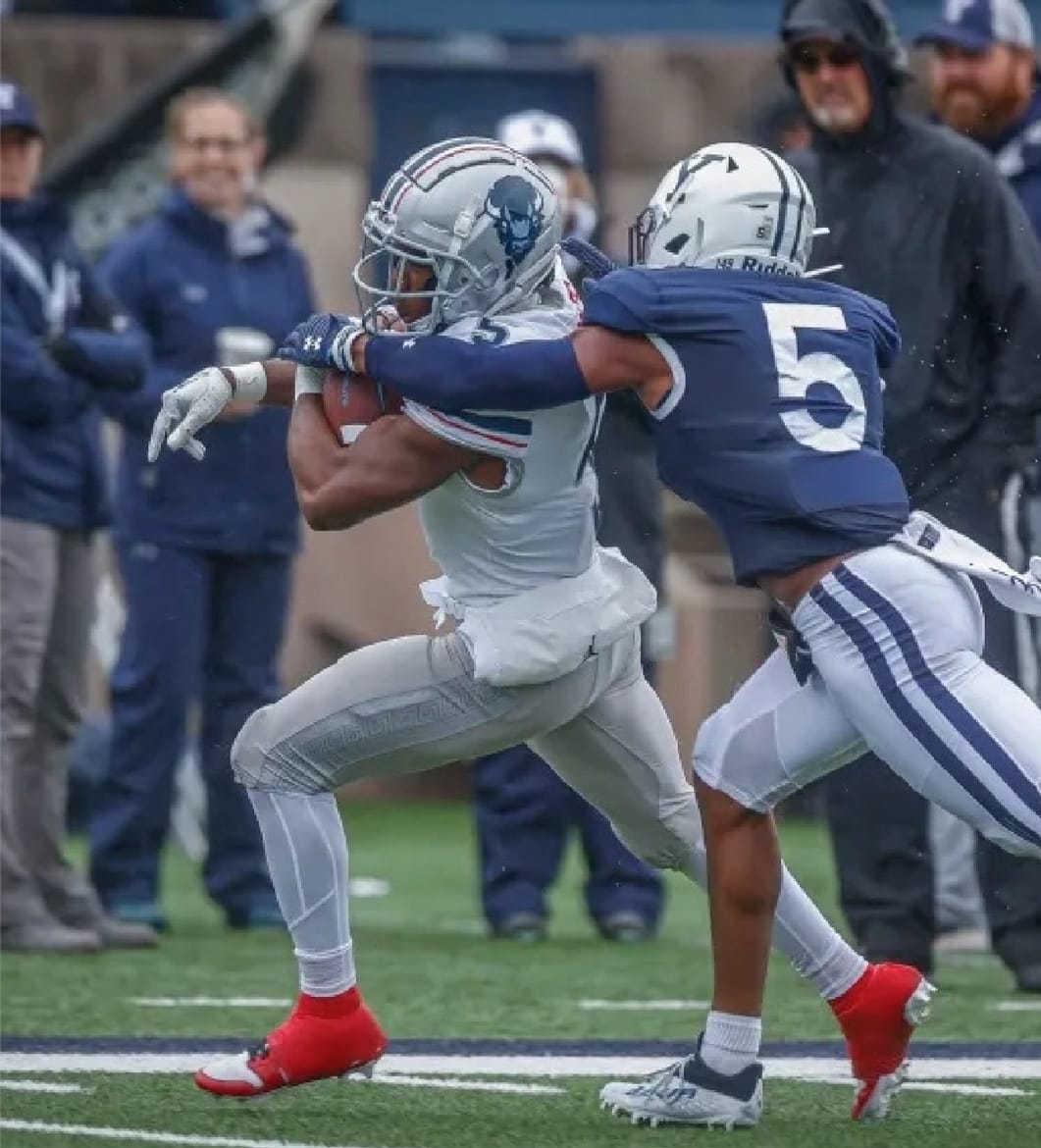
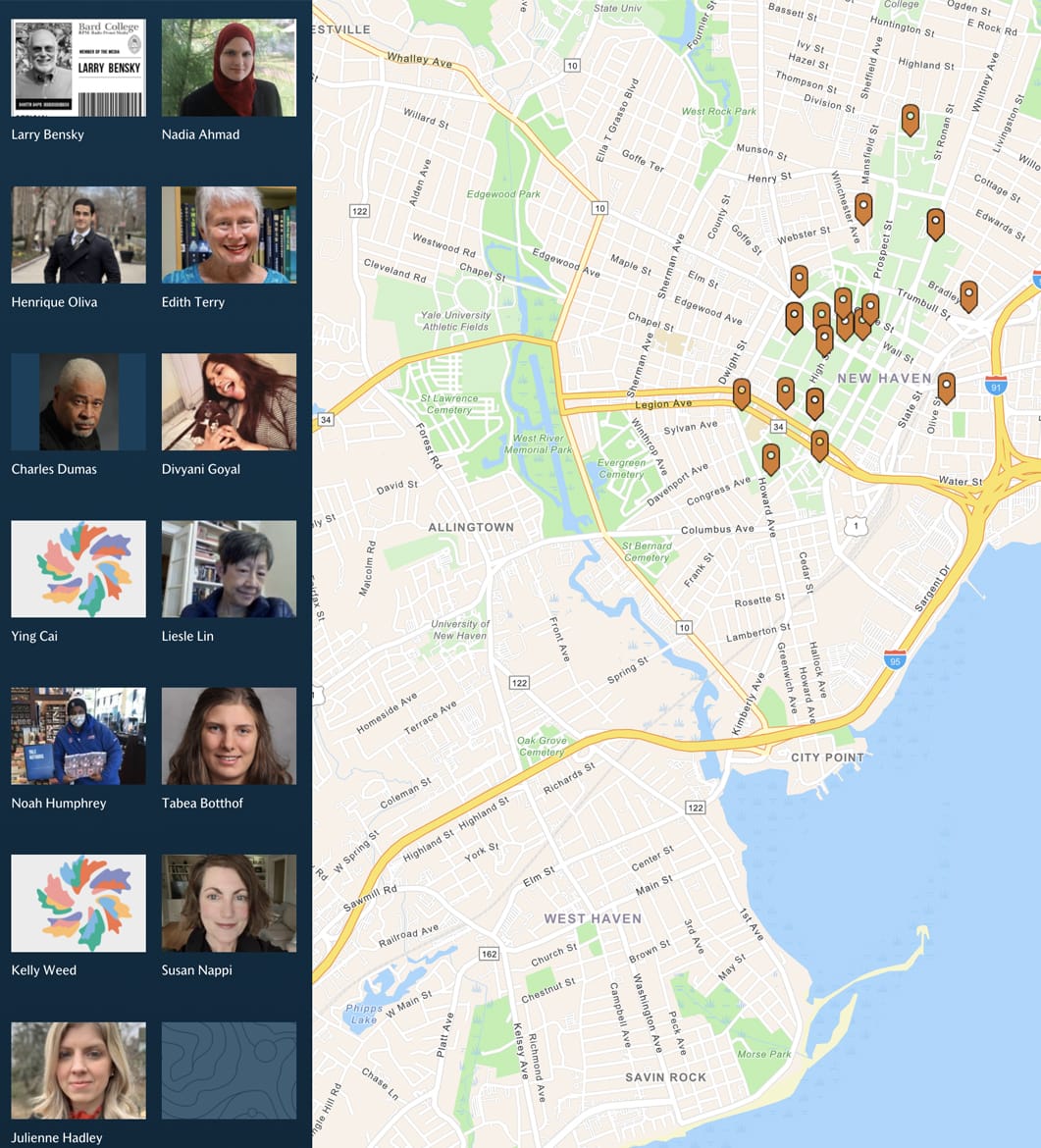
Click on an image to display more information above.

What We Will Be — Together
Belonging at Yale fosters meaningful connections and promotes a culture of belonging through educational events, resources, and learning opportunities.
In partnership with the Office of Public Affairs and Communications, a plan for engagement and communications was launched in 2022. The plan focuses on communicating values of respect, excellence, and the diversity of views and backgrounds, and on how to provide input on Belonging efforts and take advantage of opportunities for learning and connection with others.
Monthly themes and engagement opportunities invite members of our university community to connect with one another and to explore what it means to belong at Yale.

Harmony Classic
On October 1, the NAACP Harmony Classic came to Yale for the first time with a season-opening football game between the Howard University Bison and the Yale Bulldogs and an appearance by the renowned Howard Showtime Marching Band. This historic matchup, in collaboration with the Connecticut NAACP, was also an opportunity for community connection with alumni sorority and fraternity members and Yale staff joining in the pre-game tailgating and festivities. Representatives from the NAACP, Yale, and Howard participated in the coin toss. The Harmony Classic Planning Committee, convened by Associate Vice Presidents Ronnell Higgins and Deborah Stanley-McAuley, included the Connecticut NAACP, Yale Athletics, Yale College, the Afro-American Cultural Center, the Office of the Secretary and Vice President for University Life, and representatives from multiple university departments.

My Story
Storytelling is central to increasing understanding and creating stronger connections between us.
Throughout this year, we have been inspired by the stories of belonging generously shared by members of our Yale community through the My Story kickoff hosted by Secretary and Vice President for University Life Kimberly Goff-Crews. The conversations addressed disability, identity, and life at Yale, and the additional stories and reflections were added to the My Story Map. We look forward to an increased focus on stories from people across the university in 2023.
What Comes Next?
The work to create and sustain a strong community at Yale is ongoing. As we look ahead, we will place additional emphasis on the following areas, based on the needs of the schools, administrative units, and the university as a whole, in response to issues facing the broader society.
I encourage you to remember that the responsibility for Yale’s excellence rests with all of us. An educational environment provides special opportunities to explore and learn, but also to respond, change, and join with others to build a sense of belonging.
—Kimberly M. Goff-Crews
Secretary and Vice President for University Life
Addressing Structural Issues and Bias:
In the coming year, we will continue to address structural and cultural issues that present obstacles to equity, inclusion, and belonging. We will increase attention to anti-Semitism, anti-Asian, anti-Latinx, and anti-LGBTQ sentiment, and accessibility for people with disabilities.
Cultivating Conversations:
Faculty, students, staff, and alumni report feeling challenged when having difficult conversations, particularly when their viewpoints may be in the minority. In response, an action item was included in the five-year plan. The new project, Cultivating Conversations, is in the early stages of development and we are working to identify next steps.
Assessment:
We are deeply committed to assessing progress toward goals at all levels of the institution. We are developing and supporting the collection of relevant data that decision-makers need to assess the impact of the policies, procedures, and programs so we can adjust them as needed over time.
Focus on retention:
We have made great strides in diversifying our community and will deepen our work on retention of faculty, students, and staff. Survey data and other sources are providing useful input for our next steps.



